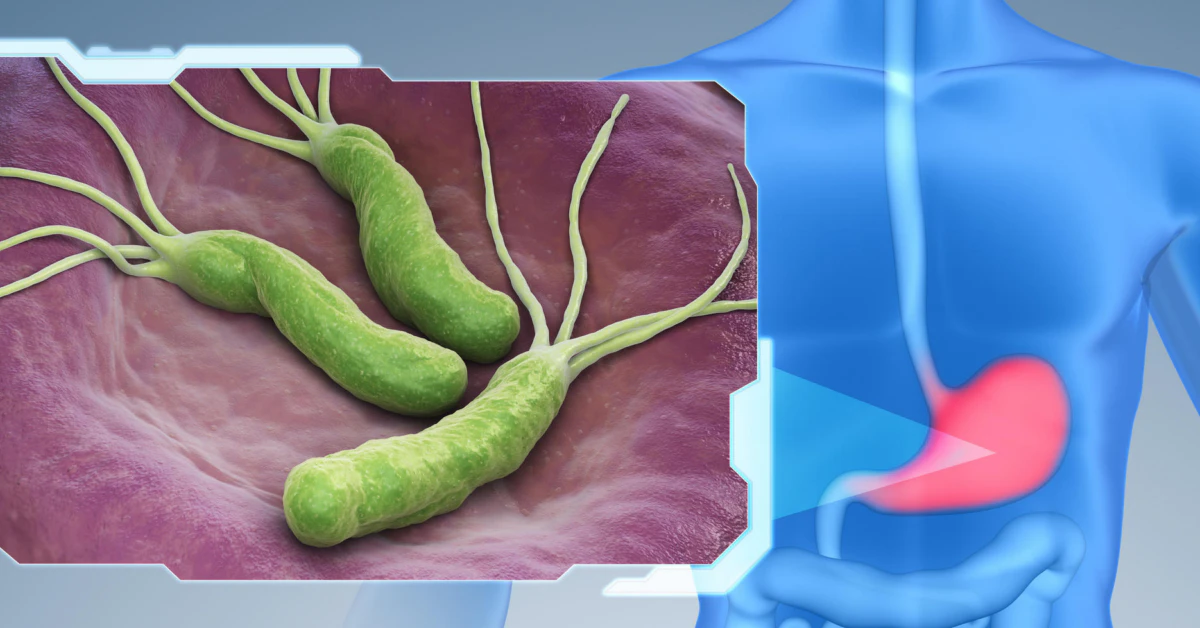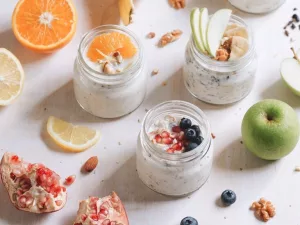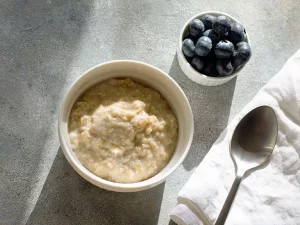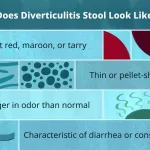Feeling that gnawing pain in your gut isn’t always about that greasy burger you ate. Sometimes—and this might hit hard—it’s H. pylori infection, the bacteria quietly tied to millions of stomach cancer cases globally. Before you freak out… not every infection becomes cancer. There’s a whole lot more to unpack, and I’m here to help.
Here’s a quick lifeline: Over half the world’s population has this gastric bacteria. Yeah, that’s wild. Even wilder? Most don’t know it. If you’ve been staring at Google wondering, “Could this be me?”… stick with me. We’re discussing why it matters for your digestive health, how to spot it, and what to do next.
What Is H. pylori—and Should You Worry About It?
H. pylori isn’t some sci-fi villain—it’s a bacteria that’s been riding our digestive highways forever. But here’s the twist: It’s not always evil stuff. Let’s start with the basics and find out why this bacterial infection can be both a no-big-deal and a total nightmare.
How does H. pylori affect your stomach lining?
Imagine your stomach lining is a fortress wall—except this bacteria’s like a ninja squad that sneaks through cracks. It’s got this weird superpower: digging into the mucous layer where acid can’t kill it. Once it’s in, it churns out enzymes that irritate the wall, causing ulcers or worse over time. A 2025 WHO report even calls it a “defensive hacktivist” because of how it latches onto cells without getting behind bars.
Survival tricks of H. pylori
This bacteria’s idea of party favors includes:
- Releasing urease to neutralize stomach acid (step one in infiltration)
- Using flagella to swim through mucous (very clingy behavior)
- Hiding from your immune system by changing its surface proteins (camouflage ace)
Healthy vs. Infected Stomach: A Quick Visual
| Healthy Stomach | H. pylori Infected Tissue |
|---|---|
| Smooth, pinkish lining | Red, inflamed patches |
| Mucous keeps acid balanced | Enzymes erode protective layers |
| No ulcers or sores | Potential ulcers, bleeding walls |
Who’s most likely to catch H. pylori?
Honey, it’s way more common than your therapist might let on. Kids, especially in crowded or resource-limited areas, often get it young. It’s transmitted through:
Surprising ways you might’ve picked it up
- Contaminated water (surprise upgrades from tap)
- Sharing Fido’s food bowl—wait, faves like ketchup packets or sushi
- Poor hand hygiene (like touching a doorknob after a sneeze)
If you grew up in a place where clean water was more of a hope than a guarantee? Chances are, you’ve brushed shoulders with H. pylori. But again—no need to press panic buttons yet. Knowledge’s the real weapon here.
H. pylori Symptoms: Silent Intruder or Obvious Threat?
Can you be hosting a bacteria rent party and not even know it? Let me spill the honest truth—totally. Around 70% of us might not notice nada for years. Think of it like Wi-Fi: always present, but you only notice when it acts up.
What’s the real H. pylori symptom list?
If your stomach’s been pitching tantrums for months, here’s what to look for:
Common Red Flags
- Bloating that feels like pregnancy (but like… week 3 bloating?)
- Nausea your Z-pack can’t fix
- Burning pain between meals (like your gut’s hell-bent on reminding you it’s there)
- Unexpected weight loss (hint: not the magic kind)
- Black or tarry stools (scary? Yep. No waiting around)
When it’s not H. pylori
Ringing false alarms? These symptoms can also belong to:
- IBS (spastic gut after coffee binge)
- Acid reflux (that spicy tacos punishment)
- Stress-induced ulcers (which, wait, is that a thing?)
What if no symptoms hit your radar?
Here’s the kicker: you could carry H. pylori for decades without drama. I had a friend, Jake, who only found out during donor screening for his brother’s stomach surgery—true story. Problem? Untreated infections often lead to inflammation, which silently sets the stage for cancer. It’s like leaving a campfire burning in your gut while you binge Netflix.
Is H. pylori the Real Culprit Behind Stomach Cancer?
You’ve heard this before: “It causes ulcers, but what’s the cancer link?” Let’s slow down and noodle this through. Because the relationship is not just a “bad guy meets gut” plot—it’s nuanced, messy, and tied to your lifestyle decisions.
Breaking down how H. pylori damages cells
Inflammation chain reaction
Here’s a inside-the-body deep dive:
- H. pylori sets up shop, releases enzymes
- Continuous irritation triggers immune defenses (your body goes on warpath)
- Chronic swelling changes how stomach cells behave… a.k.a. mutations kickstart
A new 2025 study found this process increases stomach cancer risk up to 600% for some folks. Let’s not gross our way into denial, though—it only impacts 1-3% of carriers. Still too many.
Why isn’t every infection a cancer code red?
Short answer: because your microbiome’s picky, you’re human and not a lab rat, and some risk modifiers swing the needle. Genetic susceptibilities, salt-heavy diets, and smoking are like giving the bacteria a louder megaphone.
But hey, why does it actually spark cancer in certain people and not others? Researchers are clueless-ish. They’ve pieced together that the immune system’s tantrums—and mutations of subtypes—could be why Maria (the woman who discovered it post-lunch plate headache) dodged cancer but her cousin didn’t.
What’s the expert verdict on screening guidelines?
No one-size-fits-all motto here. Doctors in Japan, where stomach cancer rates run high, suggest testing for everyone “after middle age.” But in the U.S? Yeah, not yet. Symptom-based testing wins for now unless…
Case Study: Maria’s Quick Thinking
Maria chalked off her queasy-over-burritos experiences to Weaker digestion. Then one day, she Googled: “spurs ulcers + family history = trouble?” Suddenly, testing felt urgent. Fast-forward? Endoscopy, confirmed H. pylori infection, treatment—and a stomach cancer scare nipped in the bud. Thanks, Google paranoia.
Testing & Diagnosis: How to Spot This Bacteria
If your insides go “grrr” regularly, getting clear answers can feel like trying to catch a soap bar in the shower. The good news? Diagnosing H. pylori isn’t rocket science. The bad? None of the methods are perfect.
What’s the top test for H. pylori?
Breath, blood, or stool? Pros and Cons
Let’s keep it real with side-by-side breakdowns:
| Test Type | Pros | Cons | Best For |
|---|---|---|---|
| Urea Breath Test | Fast, accurate, no invasive poking | Cant use if on PPI (see below) | Ruling infection in/out |
| Stool Antigen Test | No fasting, at-home kits (ish) | Requires sample, ew | Confirming post-treatment kill |
| Endoscopy + Biopsy | Direct visualization, precise detection | Anesthesia risk, costly | Checking for ulcers or pre-cancers |
| Blood Antibody Test | Budget-friendly, initial screening | Can’t tell recent vs ancient infection | Setting baseline suspicion |
Can meds skew your test results?
Hard pass on skipping steps, folks. Taking antibiotics before a stool test? That’s like teaching your dog to pass calculus just by hearing it. Certain drugs (like proton pump inhibitors) confuse breath tests, making it look like an all-clear when it’s pandemic red.
Here’s the rule: Nix PPIs 2 weeks before breath/stool tests. If you’ve secretly taken doxycycline, check with your doctor. They’ll adjust the plan (so you don’t waste time and resources).
Treatment Options: Eradicating H. pylori Effectively
You’ve got the blue dots pulsing for treatment. But where to start? Spoiler: it’s not just popping a Z-pack. Your doctor will probably prescribe triple or quadruple therapy—no, not experimental, but your best bid yet to send it packing.
How do the latest drugs tackle H. pylori?
By 2025, treatment protocols evolved because older antibiotics quit on us. The gold standard now combines:
2025’s Go-To Therapies
- Triple therapy: Clarithromycin, amoxicillin, PPI (except regions with antibiotic resistance)
- Quadruple breakdown “bismuth barrels”: Metronidazole + tetracycline + PPI + bismuth (UGH, but tough on the bug)
- New kid on the block: Levofloxacin-based therapy (good news if you’ve tried everything else and lost)
If you’ve been there, drug resistance feels personal. But the game’s shifting. According to a JAMA report in early 2025, doctors are monitoring strain-safe choices closer than ever before.
Natural remedies: Do they really work?
Betcha wondered: Is there a smoothie for this? Garcinia? Manuka honey? Pfft—preach to people who want to avoid the antibiotic goodbye tour. But let me split hairs:
- Garlic: Lab trials show it inhibits growth; not proof enough for solo crushing it
- Probiotics: Supporting fighters? Yes. Replacement heroes? Hard pass.
- Manuka Honey: Might slow bacteria, but can’t rush them out—reserve it for post-treatment recovery
Bottom line? Don’t bank on supplements alone. They’re like trying to fix a leak with a tissue. That’s why I tell everyone: run treatment by your doctor before getting ahead of yourself.
Prevention Tips: Stop H. pylori in Its Tracks
Frankly, H. pylori’s like cigarettes or sugar—this infection’s not natural. It’s preventable, awkward as that coffee breath smell. So, what habits slice it off from your diet deed? Let’s dish.
Simple Ways to Dodge the “Stomach Saboteur”
Even grandma knew these:
- Wash hands religiously (post-bathroom, pre-snacking)
- Ditch shared toothbrushes (too intimate, literally)
- Opt for sealed water bottles (yard sink rule applies)
- Cook meat thoroughly (hello, burger-bacteria party!)
What about early-life eradication?
Debatable but gaining traction. Culture in high-risk countries (think Japan) suggests treating all kids—even those without a twinge of symptoms. Could it neaten stomach cancer rates? 2025 studies say maybe, but concerns remain about antibiotic overuse and microbiome fallout.
The Other Side: H. pylori’s Surprising Benefits
Yeah, merry plot twist: this gut goblin might occasionally be a corkboard friend. A lot of scientists are scratching their heads over these fringe wins—while the downsides loom large.
Does it ever protect your gut? Wait, really?
The GERD Conundrum
A wild theory: People without H. pylori are likelier to have acid reflux. One theory? This bacteria tweaks a signal that tells your gut to crank out less acid. So… missing H. pylori could boost that heartburn circus—but before you shrug, remember the cancer tradeoff.
Asthma too? Confirm or denial?
A sketchier link, but whisperings arose in 2025. Kids with H. pylori might have 15% lower asthma incidence. Experts think childhood exposure primes your immune system better. Hella ironic—but before you rethink eradication, keep reading.
Should Everyone Really Get Treated?
Sometimes the debate gets touchy. On one corner: curing infections slashes gastric cancer risk. The other? Unneeded antibiotics weaken gut bugs, and only 1-2% face cancer. So… should we roll out follow-up across the board? Some docs say “target at-risk communities.” Others argue mass screening is a game-changer waiting to happen.
Still meandering? Meet Anna, a nurse who skipped treatment for years. Until her brother—a stomach cancer survivor—sniffed it out via breath test. Found out she’d been carrying a genetic subtype linked to higher risk. Anna? Treating. Her story? While H. pylori’s not always a ratbag, context tips our hands.
Final Thoughts: Knowledge is Your Gut’s BFF
Let me sum up like we’re sitting around a kitchen table (and not, like, sipping kombucha).
- H. pylori symptoms can fake you out—you know your gut best.
- Stomach cancer risk? Yeah, real, but not guaranteed.
- Treatments work—but don’t experiment silently at home. Team up with a doc.
- Prevention is golden, but not so simple when you’re juggling five jobs.
If anything in this journey felt weighty—share it up. Talk to your family, talk to your doctor. My two cents? Even with all the chaos, H. pylori is one foe you can outsmart with clear eyes and a solid plan. What are you doing today to guard your digestive health? Tell me about it in the comments—or hit my DMs. Curious, confused, or confident, drop by. Your gut’ll thank you later.

























Leave a Reply
You must be logged in to post a comment.